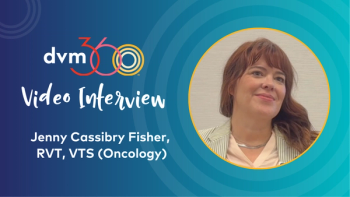
Matching associates and practices
You know that finding the right associate is an investment in the future. After all, the associate will represent you in the exam room and in the community, will reflect your practice philosophy, and may eventually be a candidate for co-ownership. But we regularly hear practice owners say it's not that easy to find a great associate.
By Denise L. Tumblin, CPA; Cynthia R. Wutchiett, CPA; and Susan J. Flemming, MBA
You know that finding the right associate is an investment in the future. After all, the associate will represent you in the exam room and in the community, will reflect your practice philosophy, and may eventually be a candidate for co-ownership. But we regularly hear practice owners say its not that easy to find a great associate.
The solution, weve found, lies in better-defined goals and a more structured approach. Not there yet? Well, youre not alone.
More than half of practitioners studied to compile the 2004 Well-Managed Practice (WellMP) Associate Management Guide, developed by Wutchiett Tumblin and Associates and Veterinary Economics, havent defined the skills and strengths theyre seeking in an associate before they begin a search. Couple that with the fact that only 42 percent ask each applicant the same interview questions, and its no wonder the associate search is a bumpy ride, often ending with a crash. Heres how to smooth your search for a great associateand advice that will help you ensure his or her success.
What do you want?
When youre ready to hire, you likely feel that you have less time than ever. So its tempting to skip the investment it takes to think about your goals for the practice and the new associate. But taking a shortcut here can cost you more in the long run. So be disciplined.
Based on your current needs and goals for the practice and this new doctor, make a list of qualities youd like to see in a candidate. Then separate your list into must haves and nice to haves. Although everyones list will be different, these three talents should be on your must-have list if youre seeking an associate who could potentially become a future practice owner:
1. A sense of purpose. This talent is fundamental to the long-term success of the practice. Outstanding veterinarians have a clear sense of how they can contribute to the care and well-being of animals. They feel passion for their work, and they want to make a positive impact on the practice and the people they associate with.
2. People development skills. Future owners must have the talent of people development if they are going to promote growth in the competencies needed in their doctors and staff members.
3. Ability to delegate. This talent helps create a climate of trust and collaboration in the hospital. The ability to delegate motivates people in their work and in their willingness to accept new responsibilities.
Now, dont kid yourself; no applicant will have all the ideal talents and competencies you identify. So, as you review candidates, keep your must-have list in mind, and dont compromise. For other qualities, make a conscious decision about which skills youre willing to help your associate develop over time.
Also think about what practice attributes attract potential associates. Owners tell us that top-quality medical care, competitive pay, and benefits are most important to recent graduates in choosing their first practice. And associates tell us that theyre attracted to a practice for its positive work environment, excellent community reputation, fair compensation and benefits, and the depth of case workup. Use this knowledge to your advantage by including the positive attributes about your practice when publicizing the position to attract high-caliber candidates. Every practice has some positive aspects to build on, but if you think your practice falls short, frame that during interviews as an opportunity for the associate to be instrumental in building the practice up and creating a new culture.
Hiring
Once youve defined the qualities successful candidates will possess, establish a hiring protocol that outlines each step youll takefrom recruitment through hiringto find an associate.
Although an owner can do all the steps involved in planning, interviewing, and selecting an associate, not every practice owner feels confident in these areas. So some WellMPs turn to professionals during the hiring process to help set the stage for long-term retention. Seeking expert guidance can help enhance the likelihood of success.
How do you select an advisor who can screen applicants for the critical talents and competencies you need? A person with a successful record in personnel selection and development is a good place to start. A background in psychology and or human resources is a plus. Experience is the key. To find people with human resource backgrounds, call a local Rotary Club to get referrals, or contact a large company, local school district, or nonprofit to find someone willing to work on a consulting basis.
When you meet with a potential advisor, pay attention to whether he or she is a good listener. Does this person understand your practice and its unique characteristics, as well as the talents and competencies youre seeking in a new associate? Will the advisor work cooperatively with you, yet challenge you to think differently about the selection and development process?
If you choose to work with a hiring advisor, he or she will help you identify the competencies and talents you seek in an associate and screen potential candidates for these attributes. Some practices use their advisor to review applications and determine wholl start the interview process. Others use their advisor to do final screenings after the phone and office interviews have narrowed the candidate pool. Your advisor should also be prepared to help you develop a training and support plan. This plan will strengthen key competencies in the associate you eventually select.
Orientation and training
Youve hired the perfect person as your new associate. Now you can just sit back and watch him or her shine, right? Wrong! The work to develop a cohesive, productive team member has just begun.
Set the tone for a successful, long-term relationship the first day by beginning with a balanced orientation program. During this initial training period, youll want to communicate your expectations clearly and develop the associates understanding of hospital protocols. Doing so helps the associate become more efficient and productive as quickly as possible.
While youre pushing for progress on some fronts, keep your new associate motivated by building on his or her strengths. And as your associate becomes more accomplished, continue to look for opportunities to keep him or her enthused and moving forward, providing ongoing options for growth and professional development so he or she doesnt grow restless.
Dont feel daunted if youre not doing this now. This focus on developing associates is a weakness for many practices. In fact, 78 percent of WellMPs dont have a written initial orientation and education program for new associates, and 89 percent dont have a written continuing education plan for all associates. Heres why its worthwhile to provide this guidance: Sometimes associates dont give you what you want simply because you didnt ask them to or tell them what you expect. How can an associate successfully represent the owner and the practice philosophy without direction and guidance?
Remember to get feedback from your associate. Employees are often your best source of information about their development progress and needs. And to feel vested in the process, your associate must share responsibility for identifying areas in which he or she needs additional training.
Mentoring
You can also spur an associates learning and growth by encouraging him or her to choose a mentor within or outside the practice. Primarily a one-on-one initiative, mentoring brings together colleagues with different levels of experience within a practice, industry, or specialty to work together to improve job performance and prospects for advancement. Generally, a mentor will answer an associates questions, provide a friendly ear to listen to the challenges he or she faces, offer advice, and share experiences.
According to psychologist Linda Phillips-Jones, PhD, a principal in the mentoring service firm The Mentoring Group and a widely published author on the subject, effective mentoring requires more than common sense and enthusiasm. Both parties need fundamental mentoring skills, including the ability to listen actively, build trust, encourage progress, and identify goals and current reality. Mentors should be able to instruct, develop the associates capabilities, provide corrective feedback, manage risks, open doors, and inspire. Mentees should be able to learn quickly, show initiative, follow through, and manage the relationship.
Why be a mentor? Youll learn from the experience because your mentee will have knowledge you dont have. And mentoring will help enhance your people-development skills and allow you to give back to the profession.
Mentoring can energize you and help your practice gain a recruitment edge, shorten learning curves, increase the associates job satisfaction and loyalty, and improve productivity and work quality. And its a powerful way to change the world, one life at a time. Associates tell us some of the best advice theyve received from a mentor is always be honest, be compassionate, trust yourselfand dont be afraid to ask questions.
At times an associate needs a mentor with skills different from his or her own, and at times he or she needs mentors with similar skill sets but more experience. The key is for the associate to identify where the gaps lie and what his or her goals are, and then choose people who have the knowledge and influence to help strengthen those areas.
The associate has the most to gain from a mentoring relationship, so he or she must initiate the relationship, negotiate the arrangements, set the goals, do the work, monitor his or her progress, and conclude the formal mentoring relationship when the time is right.
Reaping the rewards
Owners and associates tell us that to build a successful, long-term relationship the owner must communicate well; nurture the relationship; value and respect the associates contributions; recognize and reward effort; and be fair, honest, and consistent. In return, the associate will bond clients to the practice, be productive and efficient, share ideas and knowledge, and help keep the practice moving forward.
The key is to stop worrying that the best associates wont come to work for you and to start working on making your associates the envy of your colleagues. When you invest in their future, you help them thrive and the practice succeed.
Newsletter
From exam room tips to practice management insights, get trusted veterinary news delivered straight to your inbox—subscribe to dvm360.





